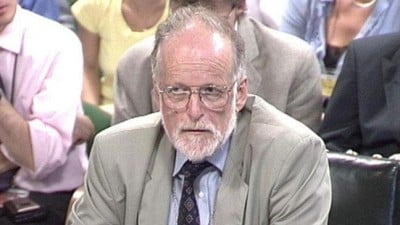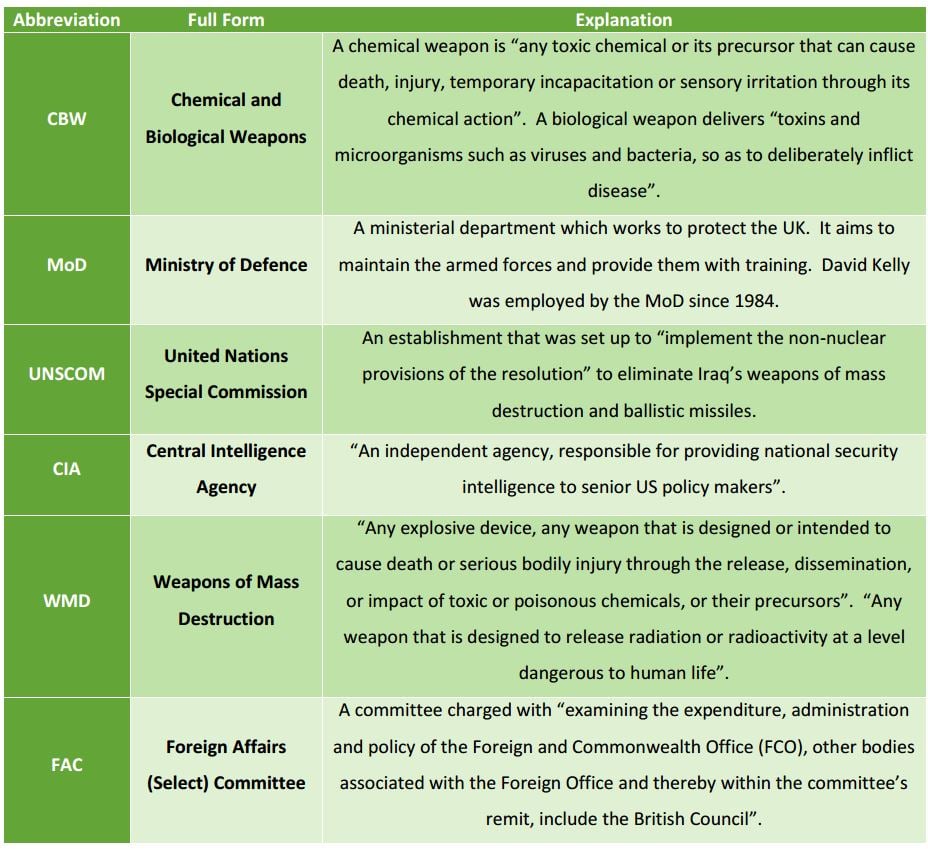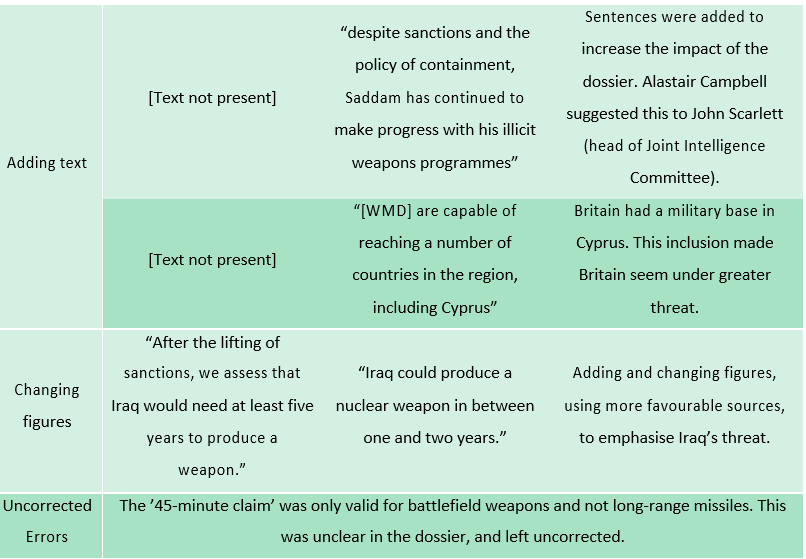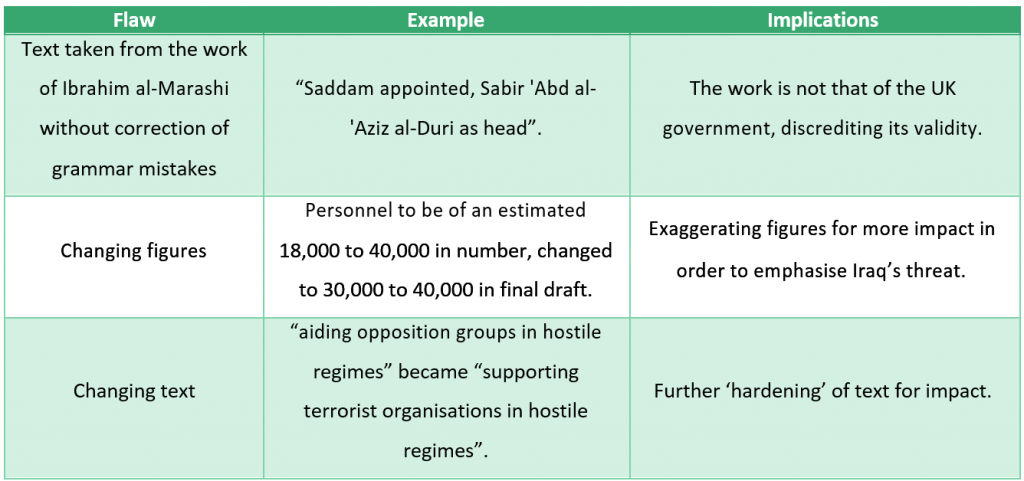The Mysterious Death of Dr. David Kelly. Was He Murdered? The Official Verdict Was Suicide…

Provided herewith are the introductory sections of this important report on the Death of Dr. David Kelly. Read complete report here.
Dr David Kelly was a British scientist, who worked as a weapons inspector for the United Nations Special Commission (UNSCOM). He was renowned for his expertise in his field; over the course of his career, he developed an intricate understanding of Iraq’s weapons programmes. Thus, the government and secret services regularly sought his advice.(49)
On March 19th 2003, five countries, including the UK and US, invaded Iraq. The basis for this war had been laid out in two dossiers (Section 3), published in the preceding months, to which Kelly had contributed. However, when he began to raise concerns about the integrity of these documents, he would find himself caught in a political storm. Four months later, Kelly was dead. The official verdict was suicide; a decision that many believe is flawed. Twelve years later, many questions remain unanswered, and the search for the truth continues.
This report will investigate the death of Dr David Kelly on the presumption that: (i) he was murdered, or (ii) he committed suicide.
To achieve this, it is necessary to objectively assess the available evidence with consideration to current developments. Furthermore, the knowledge of those who have disputed the verdict will be sought to sharpen a picture still shrouded in ambiguity.
This topic is particularly pertinent in light of the impending Chilcot Report, which will examine “the UK’s involvement in Iraq, including the way decisions were made and actions taken”.(36)
There are many aspects to the case, and these cannot be considered in isolation. The complexity demands an appreciation for how the evidence interacts within the wider context surrounding the key event.
Therefore, this report will address the events chronologically, regularly analysing how they may have contributed to the death of David Kelly. The report will then draw upon this essential information to outline the main theories and their relevance within the underlying context.
2.4 GLOSSARY OF ABBREVIATED TERMS
Table 1: A list of common abbreviations that will be used throughout this report. The full form is given, along with the definition (23, 35, 46, 63,65, 66)
2.5 TIMELINE OF MAIN EVENTS
Figure 1: The timeline describing the main events, from Dr Kelly’s appointment at the MoD, to the day his body was found(7)
2.6 KEY CHARACTERS
Figure 2: The key characters involved with Dr Kelly’s death, and how they were involved (1, 2, 17, 41, 43, 47, 48, 64)
3 THE DOSSIER
Published on 24th September 2002 (see Figure 1), the ‘September Dossier’ (formally known as ‘Iraq’s Weapons of Mass Destruction: The Assessment of the British Government’) would spark the cascade of events that led to Dr
Kelly’s death.(29) The government’s paper aimed to investigate WMD in Iraq, and ultimately led to the country’s invasion in 2003. A second document, the ‘February Dossier’ (formally known as ‘Iraq – Its Infrastructure of Concealment, Deception and Intimidation’) was later published on 3rd February 2003.(28) This section will investigate the dossiers and their claims to determine how they could have led to Kelly’s death.
3.1 THE ‘SEPTEMBER DOSSIER’
According to Alastair Campbell (see Figure 2), the September Dossier aimed to “[set] out the facts on Iraq’s WMD”.(42) However, when Whitehall published documents to discuss the creation of the dossier, it surfaced that many aspects were changed in order to justify the case for war.
The most major change caught Dr Kelly in the political storm that led to his death. Labelled as the ’45-minute claim’, the dossier suggested that Iraq could fire its WMD within 45 minutes of the order. This was among several other changes made to the first draft in order to, as BBC reporter Andrew Gilligan claimed, “sex up” the dossier to make the UK’s case of invasion stronger.(42) These changes are outlined in Table 2.
Many blamed Campbell for these changes, which he denied. The MoD claimed that “the purpose of the dossier was precisely to make a case for war, rather than setting out the available intelligence, and that to make the best out of sparse and inconclusive intelligence the wording was developed with care”.(59)
3.2 THE ‘FEBRUARY DOSSIER’
In February 2003, the government released a second publication, which also focused on WMD in Iraq. However, there were fundamental flaws; a substantial amount of its wording came directly from the work of a postgraduate student, Ibrahim al-Marashi. In addition to this, grammatical errors were reflected between the two documents. Like the September dossier, more words were ‘hardened’ for impact: these are shown in Table 3.
Table 2: A comparison of the changes made between the draft September dossier (up until 19th September) and the final, published September dossier (24th September).(42) The last column states how this change affected the meaning of the dossier
Table 3: Changes made to the February dossier. The flaws are listed, along with an example, and how this affected the meaning of the dossier(9, 28, 45)
3.3 DR KELLY’S ROLE
Dr Kelly described his involvement in the September dossier as “writing an historical account of the UNSCOM inspections and providing input into Iraq’s concealment and deception”.(54) He was shown a draft on 9th September 2002; Kelly believed that the wording was not incorrect, but had “a lot of spin on it”.(7) Despite this, he did not explicitly alert his seniors, and did not mention the 45-minute claim when attending a meeting on the dossier on 19th September.(7) However, it must be noted that the dossier was further altered after this meeting: Kelly might not have seen the more dramatic changes until it was published.
At first, Kelly showed some concern about the dossier’s exaggerations, and it appears that he distanced himself from its drafting. In an unpublished article, Kelly wrote that he believed that there was a long-term threat of WMD in Iraq, but that the immediate threat was only modest.(38) It is possible that when the exaggerations continued in the February dossier (Section 3.2), Kelly started to show more concern, thereby pushing him to voice his opinions.
3.4 ANALYSIS
The exaggerations and mistakes made in the dossier were glaringly obvious. It is now widely believed that the government, namely Alastair Campbell, did this in order to strengthen their case for the invasion of Iraq. Due to the seriousness of this allegation, any criticism might have had great repercussions, to which Kelly was not immune. This will be further explored in Section 4.
Overall, it is not possible to draw a definitive conclusion from this section alone. Rather, this provides a ‘foundation’ in order to contextualise and support subsequent evidence regarding the cause of Kelly’s death.
Read complete report here.






